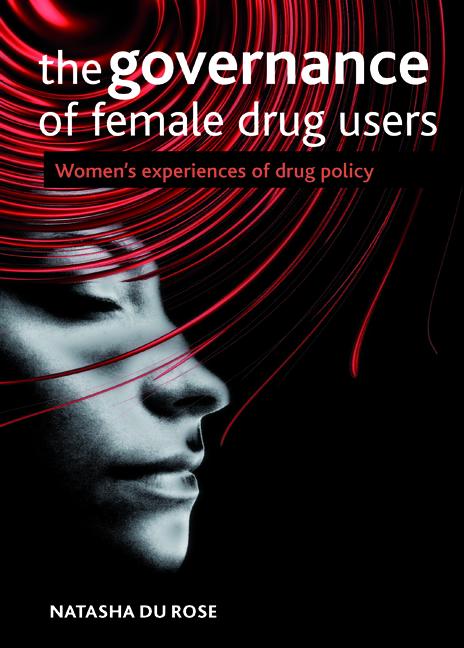seven - Social stories
Published online by Cambridge University Press: 10 March 2022
Summary
Introduction
Preliminary analysis of the women's narratives demonstrated that their accounts were largely psychosocial. Chapter Six focused on how the women related their experiences of drug use, and the social conditions in which this drug use occurred, to their psychological wellbeing. These most dominant stories the women told reflect the broader sociopolitical context in which their narratives emerged, wherein illicit drug use is both psychologised and individualised. The psychosocial accounts the women provided of their drug use rendered less dominant other more social stories, which, nevertheless, were present in their narratives. The social stories the women told about their drug use are tales of gender, poverty and regulation. The contradictory aspects of their narratives identified in Chapter Six, but with an emphasis on their more social meanings, are revisited here.
The subjectivities the women in this study adopted for themselves, and hence the way they saw themselves, were shaped and framed by governmental technologies. The women had somewhat assimilated governmental constructions, and unknowingly colluded in their own control and regulation. At the same time, they twisted the subjectivities and regulations imposed on them by ‘the authorities’ at the level of discourse. They inserted themselves into the process of governance that they are the subjects of, and ascribed new and different meanings to their subjectivities. Although they had absorbed and complied with dominant, psychosocial constructions of their subjectivities, through which they are responsibilised for their predicament, embedded within their narratives were more social stories that undermine and subvert dominant and official understandings of them.
Unrecognised pain
There was a paradox inherent in the women's accounts of their illicit and licit drug use. This was evident from some of their accounts of their experiences of prescription drugs as compared to their experiences of heroin and crack in the context of contemporary drug policy. Their accounts draw attention to the incongruent character of contemporary drug policy. All of the women in this study explained how their drug use functioned as a form of escape from experiences of trauma, abuse and isolation (see Chapter Six, p 163–171). While female users are not authorised to govern their emotional pain with illegal drugs, some described how they were encouraged to use legal drugs prescribed by doctors for depression.
- Type
- Chapter
- Information
- The Governance of Female Drug UsersWomen's Experiences of Drug Policy, pp. 203 - 268Publisher: Bristol University PressPrint publication year: 2015



